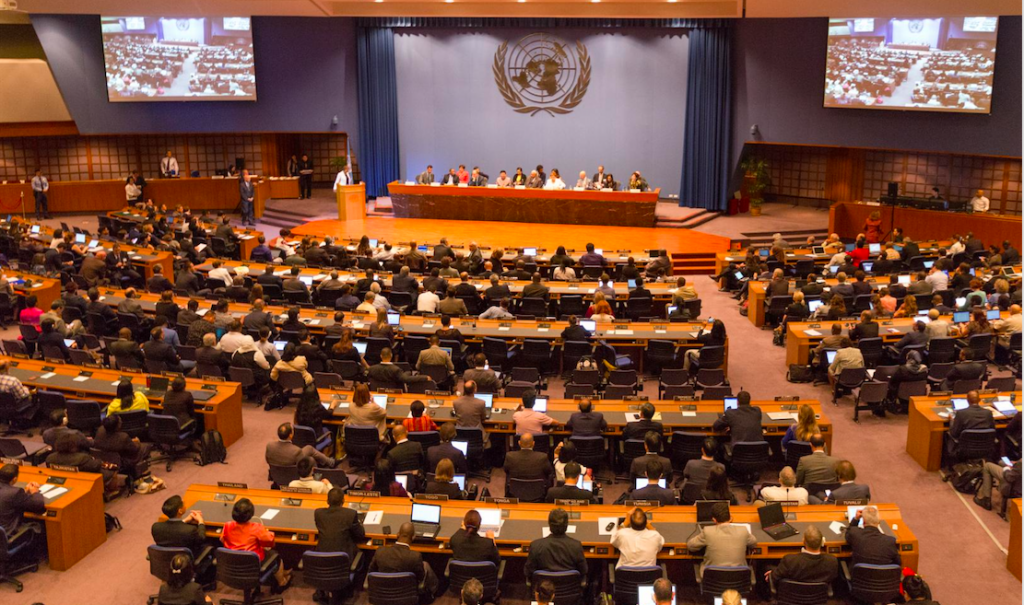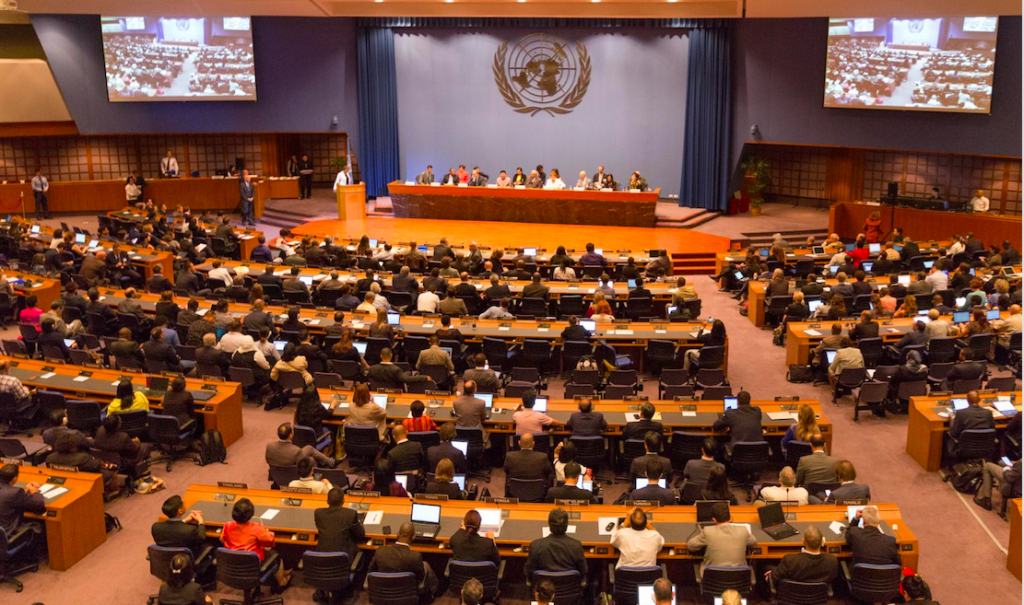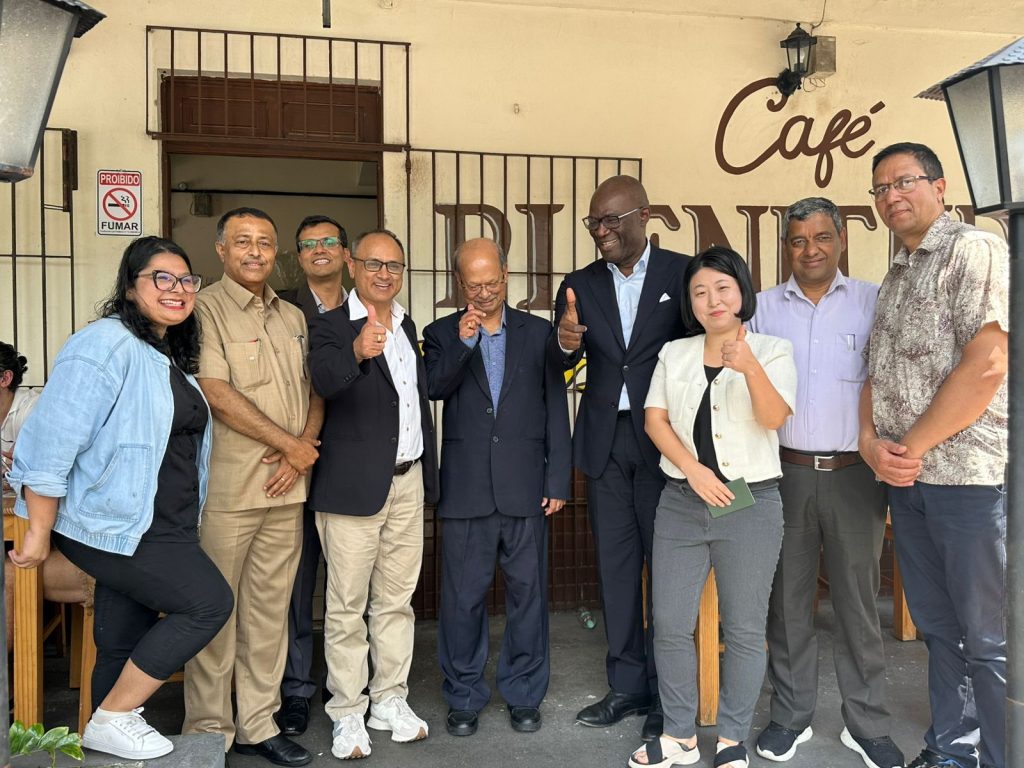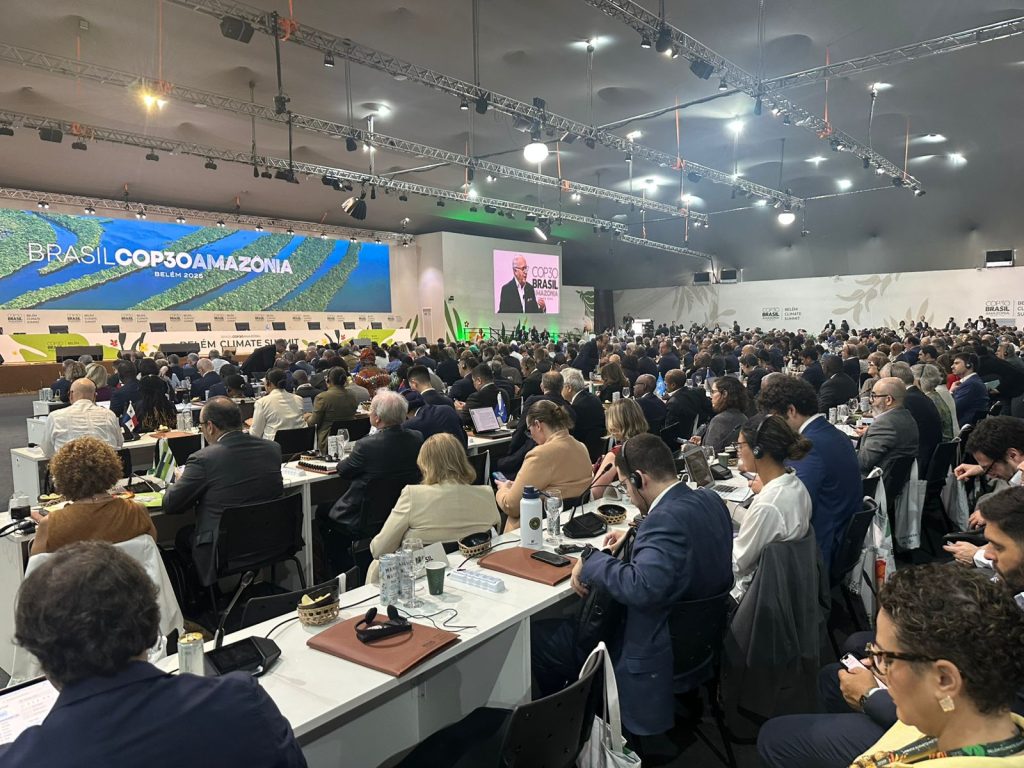Civil society organisations react to Bangkok climate talks
- Nature Khabar

 As climate talks end in Bangkok, civil society organisations acknowledge that while there has been progress on the negotiating text for the Paris Rulebook it has been uneven.
As climate talks end in Bangkok, civil society organisations acknowledge that while there has been progress on the negotiating text for the Paris Rulebook it has been uneven.
Substantive issues on finance and differentiation, among others, still hang in the balance.
To reach an ambitious deal in Katowice, which includes a strong rulebook, finance and stronger commitments to ambition, political leaders must talk to each in the next few months to infuse trust into climate discussions.
Thousands of people in over 90 countries on every continent came out on the streets this weekend to demand that governments tackle climate change. On Monday, the UN Secretary General António Guterres will make a plea to act on the climate crisis that is ravaging entire communities and hundreds of mayors, CEOs and citizens will pledge their commitment to the cause at the Global Climate Action Summit in California this week.
The IPCC Report on 1.5C, which will feed into the Talanoa Dialogue, will heighten the drumbeat for action. This must be loud enough to spur the Polish Presidency to lead diplomatic efforts on all fronts as hosts in Katowice.
CAN members react:
"The planet’s alarm bells are ringing; just this year we’ve endured deadly heatwaves and floods, devastating wildfires, and record high temperatures. Unfortunately, climate negotiations are still taking baby steps when they should be sprinting towards solutions.
-Finance to developing countries-- to both help them cut their greenhouse gas emissions and to support poor communities vulnerable to extreme climate shocks—remains a critical, unresolved issue. If developed country governments don’t step up by the time COP24 kicks off in December, they risk putting the Paris Agreement in jeopardy." Tracy Carty, Climate Policy Lead, Oxfam
-“We have fortunately avoided going off the cliff edge. Governments have empowered the co-chairs to turn the progress made so far into a more solid basis for negotiations in Poland. It is now vital for the co-chairs to change the course of the negotiations from diplomatic doldrums towards a win-win approach and craft middle ground options that the whole world can get behind at COP24” - Mohamed Adow, International Climate Lead, Christian Aid
-“The Paris Agreement is on the brink. Developed countries are going back on their word and refusing to agree clear rules governing climate finance. If they remain stuck in their positions and fail to loosen their purse strings, this treaty may collapse. We have a mountain to climb before the next climate summit this December. Finance ministers must now step in and deliver on the promises made in Paris.” - Harjeet Singh, Global Lead on Climate, ActionAid International
-A lot of work remains as we leave Bangkok tonight. All countries will need to do their bits to lead us towards a successful COP24. German Chancellor Angela Merkel must explain by COP24 how she will materialize her promise of doubling the German climate finance and announce a contribution to the Green Climate Fund. The coal commission must deliver first results to prove that Germany is serious about mitigation action. Also, the EU must send the strong signal of enhancing the current 2030 climate target. – Rixa Schwarz, Team Leader International Climate Policy, Germanwatch
-“Market negotiations have suddenly jumped forwards in Bangkok, but countries are heading into a heavy fight at COP24. Some seem to have accepted the fact that markets as they exist today cannot continue, but we’re still navigating in very risky territory. The threat of agreeing on catastrophic rules for post-2020 markets is still very real and frightening.” - Gilles Dufrasne, Policy Researcher, Carbon Pricing, Carbon Market Watch
-“The negotiation text is not exactly a piece of art, but at least we now have a basis for making much needed compromises at COP24. When ministers arrive at the COP in Katowice they must do their part of the job: increase mitigation, ambition, and make sure more finance is provided to poor people who suffer from the harmful impacts of the climate crisis. It is however very disappointing that no country seems to take on a leadership role and try to forge the compromises. The EU should seriously consider stepping in as the union has previously been able to play a bridge-building role. At present they don’t play this role and it creates a vacuum.” - John Nordbo, Head of Climate Advocacy, CARE Denmark
-“These talks have been beset with tension and parties have wrestled with reaching a balanced proposal on the Paris rulebook. Progress has slowed, leaving the heavy lifting for COP24. A leadership deficit is the root cause of this slow pace and needs to be immediately addressed. The upcoming California Climate Summit, New York UN Climate Week and Pre-COP must now be leveraged to unlock contentious issues like finance and differentiation,” - Taehyun Park, Greenpeace East Asia Global Climate Political Advisor
-“South Asian countries are keen to lead the revolution towards renewable energy, but the region is being repeatedly hit by disasters. With our public resources constantly diverted to coping with impacts, climate talks must provide the climate finance needed to make the transition to renewables a reality." - Sanjay Vashist, Director, Climate Action Network South Asia (CANSA)
-“While this meeting in Bangkok has experienced uneven progress and challenges, it has given Co-Chairs the mandate to prepare a joint reflection note proposing text and the way forward. COP24 is a significant conference to finalise the Rulebook of the Paris Agreement and raise climate ambition. The Co-Chairs’ outputs, supported by multiple forthcoming events, including the release of the IPCC 1.5C report, must facilitate the convergence towards achieving an effective and productive outcome at COP24. This includes the provision of adequate climate finance to enable developing countries to make a greater shift to clean energy investments. There is no time to lose!” -Nithi Nesadurai, Regional Coordinator, Climate Action Network South-East Asia
-“Progress in Bangkok has been slow and significant work remains between now and Katowice. During COP24 the world will celebrate the 70th anniversary of the UN Declaration on Human Rights. Parties must take this opportunity to deliver on the vision of the Paris Agreement, that of people-centered climate action by adopting a robust set of Implementation Guidelines that integrates human rights, the rights of indigenous peoples, and gender equality.” - Erika Lennon, Senior Attorney, Center for International Environmental Law (CIEL)
-“The outcome of the Bangkok climate talks was uneven, and leaves much work to be done over the next three months to assure a successful summit in Katowice, Poland this December. On the core issues of forward-looking climate finance and the degree of flexibility developing countries should be given on the information and reporting requirements for national commitments under the Paris Agreement, negotiators were stalemated in Bangkok. It’s now up to the incoming Polish presidency and officials leading negotiations to find ways to bridge the deep differences on these issues and to secure agreement in Katowice on a robust, comprehensive package of rules to implement the Paris Agreement. - Alden Meyer, Director of Strategy and Policy, Union of Concerned Scientists
-“We leave Bangkok with agreement on the rules to implement the Paris Agreement within reach. COP24 must achieve a broader package of outcomes, including on more ambitious climate action and commitments, climate finance and addressing loss and damage from climate change. These areas are all essential to implementation of the Paris Agreement, and governments must put the pieces in place to achieve all of them by they time they convene again in Katowice.” Mark Lutes, Senior Global Climate Policy Advisor, WWF
-“Let’s face it we’re leaving this session still far off from a successful outcome at COP24. Progress on the rulebook will require progressive alliance to step up and build trust and ministers to give guidance that starts bridging the gap on political crunch issues around finance and differentiation.
-If the rulebook is the backbone of the Paris Agreement, then an ambition outcome is its heart and finance its lifeblood - let one fall into disrepair and the whole body is in trouble. To make healthy progress on any, let alone all of these issues will require a significant step up in diplomatic outreach on behalf of the incoming Polish Presidency and traditional bridge builders like the European Union.” - Jennifer Tollmann, Climate Diplomacy Researcher, E3G




Feedback